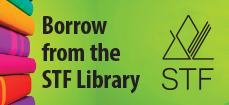Examine the benefits, challenges and responsibilities of being both a member of a church and an engaged citizen.
[KG, DHP, CH]
| (a) |
Explain Jesus' statement to "Give back to Caesar what is Caesar's and to God what is God's" (Mk. 12:17). |
| (b) |
Contrast Peter's words: "we must obey God rather than any human authority" (Acts 5:29) with Paul's writings on submitting to governing authority (e.g., Romans 13: 1-7). |
| (c) |
Debate issues of the primacy of conscience versus the authority of church and government (e.g., misuse of power, civil disobedience, conscientious objection, other issues addressed in the Pastoral Letter on Freedom of Conscience and Religion, April, 2012 - CCCB). |
| (d) |
Examine Christian perspectives on political themes such as globalization, economic inequality and self-interest. |
| (e) |
Discuss benefits and challenges of the ten responsibilities of a good government identified by the Canadian Conference of Catholic Bishops, 2001 including:
|
| (f) |
Discuss benefits and challenges of the six responsibilities of citizens to the country identified by the Canadian Conference of Catholic Bishops, 2001 including:
|
| (g) |
Examine the obligation of a Catholic to assist those who are politically marginalized by governmental policies including First Nations and Métis peoples and others (e.g., veterans, refugees). |
| (h) |
Construct meaning for the expression 'politically active', and inquire into how living according to the Gospel is a political act (e.g., called to transform culture). |
| (i) |
Examine how a Christian life may lead to supporting the work of Canadian social movements and organizations (e.g., Chalice, Christian Near East Welfare Association, Development and Peace, World Wildlife Fund Canada, Métis Nation - Saskatchewan). |


- Catholic Social Teaching: Christian Life in Society. Teacher Guide


- The Catholic Faith Handbook for Youth. Teacher Guide




- Jesus Christ. Teacher Guide: God's Love Made Visible
- Jesus Christ: God's Love Made Visible
- The Living Word. Teacher Guide: The Revelation of God's Love
- The Living Word: The Revelation of God's Love
- The Paschal Mystery. Teacher Guide: Christ's Mission of Salvation
- The Paschal Mystery: Christ's Mission of Salvation
- Vocations. Teacher Guide: Answering God's Call
- Vocations: Answering God's Call






- God's Word Revealed in Sacred Scripture. Teacher's Resource

- Ecumenism and Interreligious Dialogue. Teacher's Manual


- Ecumenical and Interreligious Dialogue. Teacher's Resource


